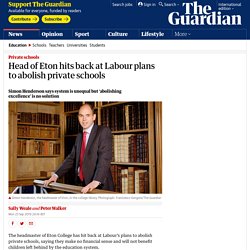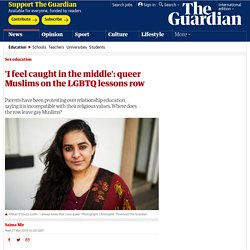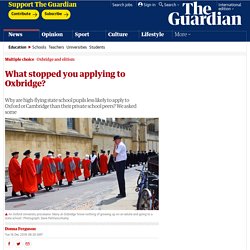

Governments are failing Black students – and rappers are picking up the slack. This week, US rapper Megan Thee Stallion launched the Don’t Stop scholarship in partnership with Amazon Music, giving two women of colour $10,000 each to study for a degree.

This came the day after rapper Travis Scott announced on Twitter he would pay for five students’ first semesters at an HBCU (historically Black college or university, in the US). Kanye West recently set up a college fund for George Floyd’s daughter and in 2017, another Chicago son, Chance the Rapper, gave $2.2m to the city’s schools. Closer to home, as well as funding two scholarships for Black British students at Cambridge University, Stormzy launched his £10m fund for Black British causes. Among the recipients so far is the Black Heart Foundation, which received £500,000 to support 50 students. In 2017, the London rappers Krept and Konan launched the Positive Direction Foundation, a programme based at Harris Academy in South Norwood that gives secondary school students access to music-related workshops. Head of Eton hits back at Labour plans to abolish private schools.
The headmaster of Eton College has hit back at Labour’s plans to abolish private schools, saying they make no financial sense and will not benefit children left behind by the education system.

In an interview with the Guardian, Simon Henderson, who became head of the world-famous private school four years ago, acknowledged the public mood had shifted and a battle lay ahead for the future of private education. Should we abolish private schools? – video. Sure Start programme saved the NHS millions of pounds, study finds. 'I feel caught in the middle': queer Muslims on the LGBTQ lessons row. For the past month, a primary school in Birmingham has been the site of a battle over education, religious values and LGBTQ rights.

Parkfield community school had begun using the No Outsiders programme, which runs alongside relationship and sex education classes, which led to hundreds of parents withdrawing their children from classes. The school says the lessons are age-appropriate and teach tolerance for different races, genders and sexual orientations. Poorer families to get text messages in trial to support early learning. Parents are to be sent three text messages a week offering tips on how to support their child’s early learning at home as part of a government drive to improve school readiness among children from poorer families.

The texts will be sent to disadvantaged families with four- and five-year-olds, encouraging activities to improve literacy and numeracy, “such as counting the number of plates on the table”, according to the Department for Education. Bjes zombie. Rising trend of state school pupils going to university reverses. The proportion of British state school pupils going to university has fallen for the first time in eight years, according to official figures, with the lowest-performing 15 UK institutions taking less than 70% of their first-year undergraduates from state schools.

The data from the Higher Education Statistics Agency for the 2017-18 academic year showed that state-educated British students accounted for 89.8% of young entrants overall, below the previous year’s figure of 90%. For universities it marked the first reversal in the rise of state school enrolments since 2010-11, matching other data showing only slow progress being made in recruiting students from areas of low educational attainment. The fall in state school students came despite a rapid expansion of the higher education sector and an emphasis on widening participation and access programmes by universities at the encouragement of regulators. Exam reforms boost private pupils in race for universities. Tory education reforms are giving private school pupils a huge additional advantage in the hunt for university places and jobs by allowing them to sit easier GCSEs than the more rigorous exams that are being forced upon state schools, new official figures suggest.

Data released in parliamentary answers, and research into the exams chosen by private schools, shows the extent to which the independent sector is still opting for less demanding, internationally-recognised GCSEs (IGCSEs), which state schools are progressively being barred from using. Last night the Labour MP Lucy Powell, a former shadow education secretary, who received the data after tabling a parliamentary question, said it was now clear that reforms of the GCSE system had put state school pupils at a disadvantage compared with their private school counterparts.
What stopped you applying to Oxbridge? New research from the Sutton Trust has shown that high-flying pupils from state schools are far less likely to apply to Oxbridge than their peers in the private sector and, if they do apply, are less likely to be successful.

We asked talented A-level students what stopped them applying. Mohammad Alradhawi 19, second-year medical student, University College London “I have never lived anywhere but London. How can people protest about a grammar school taking in more poor pupils? “Middle-class families protest at their exclusion from grammar schools.”

Not your usual headline, but news nonetheless of a petition signed by thousands of parents objecting to a plan by Birmingham’s six grammar schools to boost the number of poorer children gaining entry. The parents say they are concerned at the possible dilution of high academic standards, but not far beneath is a clear worry that changes to admissions will mean fewer places for middle-class kids. The situation reveals just how fraught the politics of entry to selective schools has become. Theresa May’s ill-judged decision to expand grammar schools is possibly her sole flagship domestic reform. Oxbridge needs to guarantee places for the best state school pupils. Oxbridge does not represent Britain’s best or the brightest: let’s just get that out of the way.

Many of the country’s most intelligent, thoughtful and perceptive people do not attend either Oxford or Cambridge. Both institutions are instead, disproportionately, attended by the best performing slice of the most economically privileged teenagers in the country. So the figures released today, which elicit a depressing sense of deja vu, that eight top schools send as many pupils to Oxbridge as three-quarters of all schools and colleges put together, might be shocking, but they are unsurprising. Posh Boys: How the English Public Schools Ruin Britain – review.
Robert Verkaik could hardly have picked a better time to publish this.

One notorious posh boy (Eton, Oxford) exits Her Majesty’s Foreign and Commonwealth Office, another (Charterhouse, Oxford) arrives to take over. The great academy schools scandal. Kinsley Academy may officially be less than three years old, but its redbrick buildings stand as a reminder that there has been a primary school here, serving this rural, former mining community in West Yorkshire, for well over 100 years. Jade Garfitt didn’t hesitate to send her son, aged five, to the school: Kinsley born and bred, she felt she’d got an excellent education there herself. But since he started she has become increasingly concerned.
“He’s received one piece of homework this academic year,” she tells me over a cup of tea in the community cafe across the road. “He’s only done PE once since November. At one point, his class went two weeks without having their reading books changed. She says her son was for months taught by a revolving door of supply teachers. Scores of parents queue for Cardiff school breakfast club place. Scores of parents and grandparents queued up from the early hours outside a Cardiff primary school to try to secure places for their children in a free breakfast club. About 130 parents, armed with folding chairs, flasks and snacks, lined the pavement outside the school, Ysgol Y Berllan Deg, to grab a spot. Streaming at five set me up to fail, says deputy head. Image copyright Sean Macnamara Sean Macnamara was put on "the oblong table" for low-ability pupils when he was still in reception.
No-one told Sean and his friend Billy what being "an oblong" meant - but they knew. Smart lads like Matthew and Paul (Sean still remembers their names) were on higher-ability tables. Grammar schools in England to get £50m expansion fund. Grammar schools in England will be given tens of millions of pounds to expand, after the education secretary, Damian Hinds, unveiled a fund for selective schools that agree to improve applications from disadvantaged children. The £50m fund will potentially allow the creation of new “satellite” campuses of grammar schools away from their existing sites, although the Department for Education said there would be a “very high bar” for such expansions. “By creating new schools where they are needed most and helping all great schools to grow, we can give parents greater choice in looking at schools that are right for their family and give children of all backgrounds access to a world-class education,” Hinds said.
The announcement is the latest effort by the government to resuscitate grammar schools in the face of fierce opposition from educationalists and policy-makers, and few signs that the policy is popular with parents. “Schools up and down the country are desperately short of funds. Children 'denied free school meals because of parents' immigration status' Theguardian. Born to fail? No. But working class children do need help to succeed. Getting education right for working class children remains a challenge in many schools. Ofsted forgets our four-year-olds are not GCSE apprentices. Department for Education defends Toby Young appointment. The Department for Education (DfE) has defended the appointment of Toby Young to the government’s new higher education watchdog in the face of mounting concerns over his suitability for public office.
White working-class boys should be more aspirational, says Labour minister. White working-class children should be motivated to become more aspirational in schools and “push themselves” the way those from other backgrounds have done, the shadow education secretary, Angela Rayner, has argued. In an interview with the Spectator, Rayner said a focus in the educational system on women and minority ethnic groups had perhaps inadvertently had “a negative impact” on the attention paid to white working-class boys.
Clever girls, stupid boys? Image copyright Thinkstock Clever girls, stupid boys. That's become something of a modern educational orthodoxy, as girls across the developed world are more likely to get top exam grades and university places. This is why children bunk off school.... - BBC Family & Education News. ‘Working-class children get less of everything in education - including respect’ When Diane Reay, Cambridge University professor of education, started researching her book about working class children’s experiences of education, she had no idea just how much inequality she would uncover in state schools today.
Oxbridge bashing is an empty ritual if we ignore wider social inequities. The numbers are clearly unacceptable. Several colleges in both Oxford and Cambridge frequently admit cohorts with no black students in them at all. Oxford accused of 'social apartheid' as colleges admit no black students. Nearly one in three Oxford colleges failed to admit a single black British A-level student in 2015, with the university accused of “social apartheid” over its admissions policies by the former education minister David Lammy. Greening: Teaching no longer graduate-only profession.